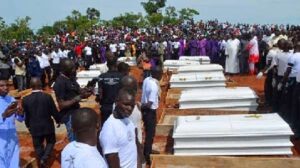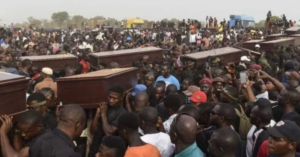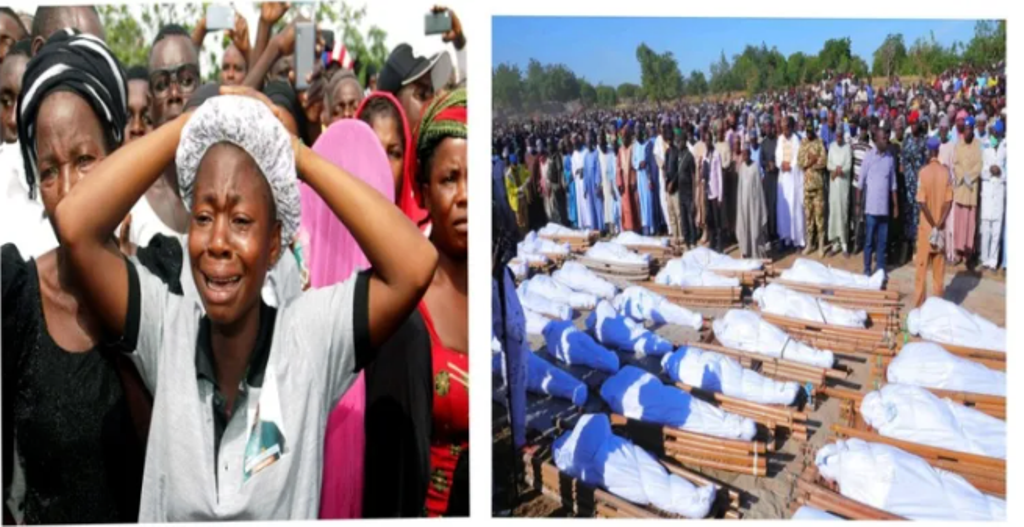Wave of Anti-Christian Violence Sweeps Central Africa and Nigeria Amid Fears of Systematic Persecution
A fresh surge of violence in central and western Africa has left Christian communities reeling since September, fueling growing concerns that believers are being systematically targeted across the region with little effective protection from local authorities. In the Democratic Republic of Congo (DRC), at least 64 people were brutally killed in early September when Islamist militants stormed the village of Ntoyo in North Kivu province.

According to Aid to the Church in Need (ACN), the victims were attacked during a nighttime vigil, with gunfire, hammers, and selective arson used in a coordinated assault that bore the hallmarks of a premeditated act of terror. The perpetrators were identified as the Allied Democratic Forces (ADF), a Ugandan-rooted militia aligned with the so-called Islamic State’s Central Africa Province. “This is yet another unspeakable massacre,” lamented Bishop Melchisédech Sikuli Paluko of Butembo-Beni, offering condolences to devastated families. ACN described the humanitarian crisis in eastern Congo as “extreme,” noting that waves of displacement, relentless killings, and the inability of national and international forces to contain the insurgency have left communities in a state of constant fear.
The Ntoyo attack follows other atrocities: 40 killed during a July prayer service in Ituri and more than 70 bodies discovered earlier this year in a Protestant church in Lubero, many of them decapitated. For the Congolese episcopate, these repeated massacres amount to a campaign of terror against Christians and civilians alike. While Congo grapples with this escalation, Nigeria—hundreds of miles to the west—is witnessing a parallel crisis of religiously motivated violence.
There, Christian leaders and rights groups warn of what they describe as a “slow-motion genocide” in the country’s north. “After three decades documenting these abuses, I can say clearly: this is not random violence, this is extermination,” said Emeka Umeagbalasi, a criminologist and head of the human rights group Intersociety. His organization recently released a report estimating that some 40 million Christians in northern Nigeria are forced to practice their faith in secrecy, often praying at night to avoid being accused of blasphemy—an accusation that can be a death sentence.
Umeagbalasi accuses the Nigerian state not only of negligence but of complicity, pointing to years of unchecked attacks by Boko Haram, the Islamic State in West Africa Province (ISWAP), and radicalized Fulani militias. He claims that under the administration of former president Muhammadu Buhari, militant groups consolidated territorial control and intensified efforts to Islamize the region. The statistics are sobering. Since 2015, at least 145 Catholic priests have been abducted, though Intersociety places the number closer to 250, with hundreds of other ministers also targeted.

More than 850 Christians are believed to remain in captivity in Kaduna State alone, many within sight of military installations. Reports suggest that over 100 hostages held there since December 2024 have already been executed. Meanwhile, a booming kidnapping economy has emerged. A recent SBM Intelligence study counted 4,722 abductions between July 2024 and June 2025, generating ransoms worth millions of dollars. Priests’ families, often under immense pressure, quietly pay for releases despite official Church policy against ransom payments.
Even stolen clerical vehicles are sold off on the black market for substantial sums. For Nigeria’s bishops, public denunciations are risky in an environment where entire parishes have been emptied out by fear. Yet the pattern, experts warn, is unmistakable: mass displacement, the burning of churches, and targeted killings suggest a deliberate campaign to erase Christian presence from large swaths of the country.
Taken together, the tragedies unfolding in Congo and Nigeria point to a broader regional crisis of faith and survival. Across borders, extremist groups are exploiting weak states, porous frontiers, and international inertia to wage campaigns of intimidation and slaughter. The voices of bishops, human rights advocates, and ordinary believers are increasingly calling the world to attention, warning that silence in the face of such brutality may allow a slow genocide to continue unchecked.
The genocide against Christians in Congo and Nigeria: the evidence that no one talks about | ZENIT – English



